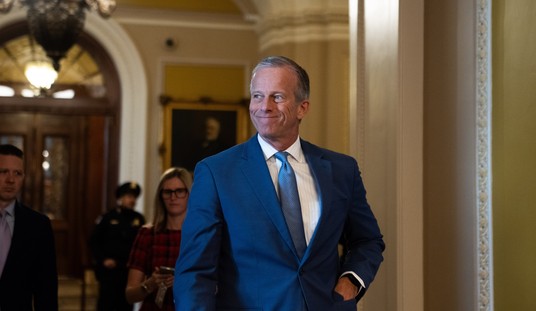When the Obama administration first went to the Supreme Court in March 2009 to explain its understanding of the First Amendment, Deputy Solicitor General Malcolm Stewart said the administration believed the government could prohibit a corporation from bouncing a book off a satellite into someone's Kindle if that communication took place within 30 days of a primary or 60 days of a general election and if the book included words advocating the election or defeat of a candidate for federal office.
"Your position is that under the Constitution, the advertising for this book or the sale for the book itself could be prohibited within ... the 60/30-day period?" asked Justice Anthony Kennedy.
"If the book contained the functional equivalent of express advocacy," said Stewart.
"And I suppose," said Kennedy, "it could even -- is it the Kindle where you can read a book? I take it that's from a satellite. So the existing statute would probably prohibit that under your view?"
"Well, the statute applies to cable, satellite and broadcast communications," said Stewart.
"Just to make it clear," said Kennedy, "it's the government's position that under the statute, if this Kindle device where you can read a book which is campaign advocacy, within the 60/30-day period, if it comes from a satellite ... it can be prohibited under the Constitution and perhaps under this statute?
"It can't be prohibited, but a corporation could be barred from using its general treasury funds to publish the book and could be required ... to raise funds to publish the book using its PAC," said Stewart.
In other words, the Obama administration believes it can bar a publisher from electronically selling a book via satellite, cable or broadcast media in an election year if the book advocates throwing someone out of Congress or the White House.
To electronically publish such a book in Barack Obama's America, a publishing house would need to start a political action committee and get political contributors to donate money to fund the operation. No capitalism would be allowed in the business of publishing books that call for the defeat of federal officeholders.
Recommended
As Stewart dug deeper into his explanation of the administration's understanding of the First Amendment, he was eventually interrupted by the ever-sardonic Justice Antonin Scalia.
"I'm a little disoriented here, Mr. Stewart," said Scalia. "We are dealing with a constitutional provision, are we not, the one that I remember which says Congress shall make no law abridging the freedom of the press? That's what we're interpreting here?
"That's correct," said Stewart.
In this case -- Citizens United v. FEC -- a 5-4 Supreme Court ruled against the administration, which sought to enforce a rule that said a corporation could not sell a pay-per-view movie to a cable television customer if the movie mentioned a candidate in an election season.
"The government urges us in this case to uphold a direct prohibition on political speech," Chief Justice John Roberts correctly observed in his concurring opinion in the case.
On Tuesday, led by Obama-appointed Chairman Julius Genachowski, the Federal Communications Commission for the first time issued regulations that would arrogate to the FCC the authority to regulate Internet traffic. The regulations come as wolves in sheeps' clothing, purporting to protect consumers from big businesses that would restrict their access to the web.
But there are two problems with what the FCC is doing: Congress has never given it authority to regulate Internet traffic, and if it is allowed to usurp that authority it will eventually use it to restrict freedom of speech.
When Congress created the Federal Radio Commission in 1927, then converted it into the Federal Communications Commission in 1934, it expressly denied this agency the authority to control speech on the radio.
Henry Bellows, one of the original FRC commissioners, accurately explained its authority in a speech to the League of Women Voters in the year the agency was born.
"Very rightly, Congress has held that the broadcaster shall not be subject to governmental dictation as to the character of the material he sends out, the Federal Radio Commission under present law cannot and will not interfere with any broadcaster's right to control and censor his own programs," said Bellows.
"In that matter, his relations are not with the government, not with the commission, but with you," said Bellows. "It is for you, the listeners, not for us, to censor his programs. It is for you to tell him when he is rendering, or failing to render, real service to the public, and you may be sure that he will listen to your voices."
Thirteen years later, in 1940, in reviewing the broadcast license of the Yankee Network for the Massachusetts radio station WAAB, the FCC ruled that radio stations were forbidden from advocating.
"A truly free radio cannot be used to advocate the causes of the licensee," said the FCC in that case. "It cannot be used to support the candidacies of his friends. It cannot be devoted to the support of principles he happens to regard most favorably. In brief, the broadcaster cannot be an advocate."
What happened between 1927 and 1940? Did Congress increase the authority of federal radio commissioners? No. An all-Democratic government had come into power and had held it for eight years. 1940 was yet another election year, and freedom of speech was not a priority for the incumbent party.























Join the conversation as a VIP Member